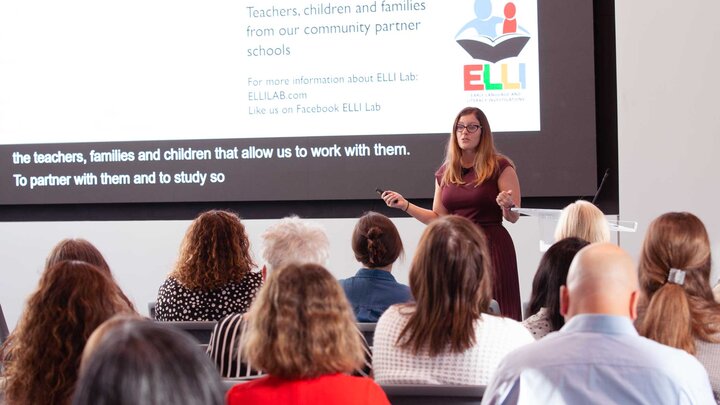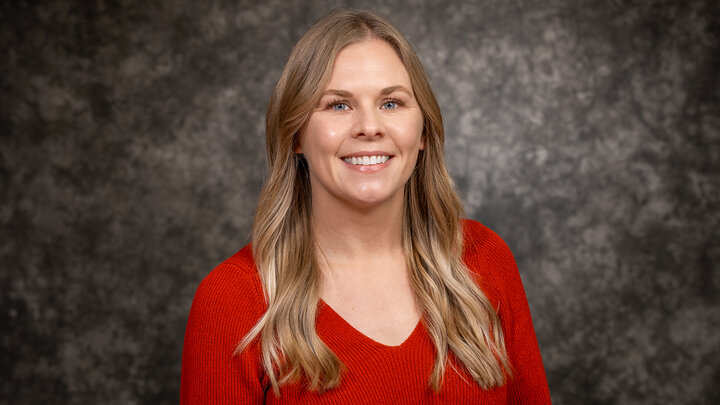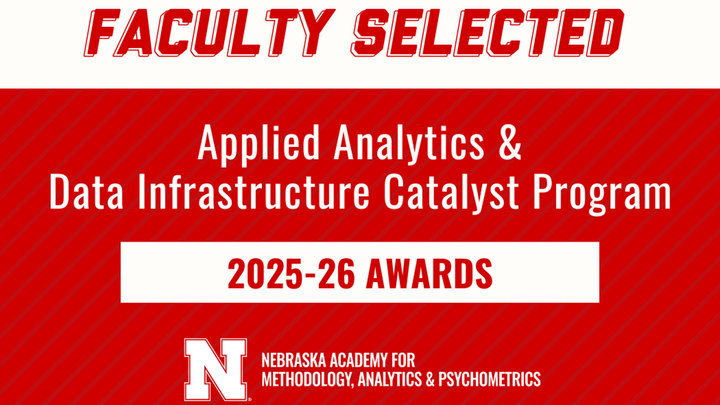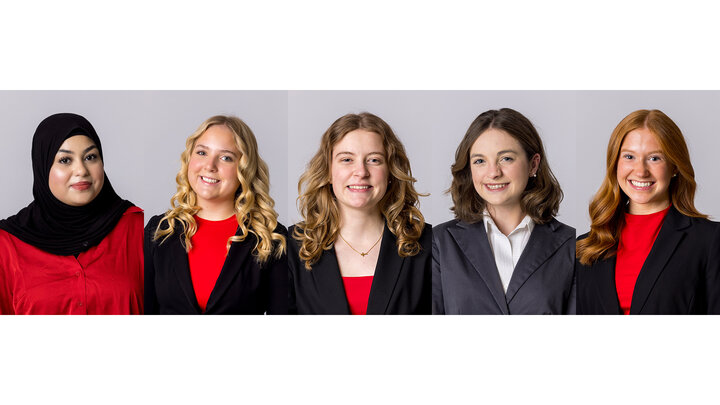Visiting early childhood researchers outlined some of their work and discussed best practices for educators at the Helen Kelley Symposium on Early Childhood Sept. 28 at Carolyn Pope Edwards Hall.
Hope Gerde, director of the Institute for Early Childhood at Texas A&M University, and Linda Reddy, professor and associate dean of research at Rutgers University, shared research on professional learning supports for early childhood educators, including the birth to pre-K and early elementary settings.
The symposium was sponsored by the College of Education and Human Sciences , with support from CYFS and NAECR, and was funded by a gift from the Richard and Helen Kelley through the University of Nebraska Foundation.
Both speakers discussed early childhood workforce and professional development supports for educators working with young children.
Gerde discussed the relationship between preschool children’s reading and writing development, and how early language and literacy progress is affected by adult-child interactions. She also outlined some ways teachers can support their students’ writing and literacy development.
She shared findings from a pilot project that assessed the effectiveness of WRITE (Writing Resources and Interactions in Teaching Environments), a resource that supports development of early writing skills for preschoolers, including spelling, handwriting and understanding that writing conveys meaning.
The WRITE system includes iWRITE, an online training program consisting of short learning modules for preschool educators to help teach the most effective methods for supporting children’s early writing.
The WRITE project is part of the Early Language and Literacy Investigations Research Group, a collaborative team of researchers from Texas A&M — including Gerde — and Michigan State University.
Reddy’s presentation focused on supporting educator effectiveness through measurement, coaching and technology — particularly data-driven professional development — and how school personnel in underserved communities can improve their practices to enhance student learning.
Reddy discussed results of studies focused on professional development of special education teachers and public school paraprofessionals. She outlined data gathering using the Classroom Strategy Assessment System (CSAS), an observational tool she developed to measure teachers’ use of evidence-based classroom practices, identify teachers’ strengths and determine areas for further development.
She also described the ReadyCoach data-driven coaching platform, which is designed to structure and support research-based coaching for early childhood educators.
After their presentations, Gerde and Reddy answered attendees’ questions about research and practice implications of their work.
College of Education and Human Sciences




